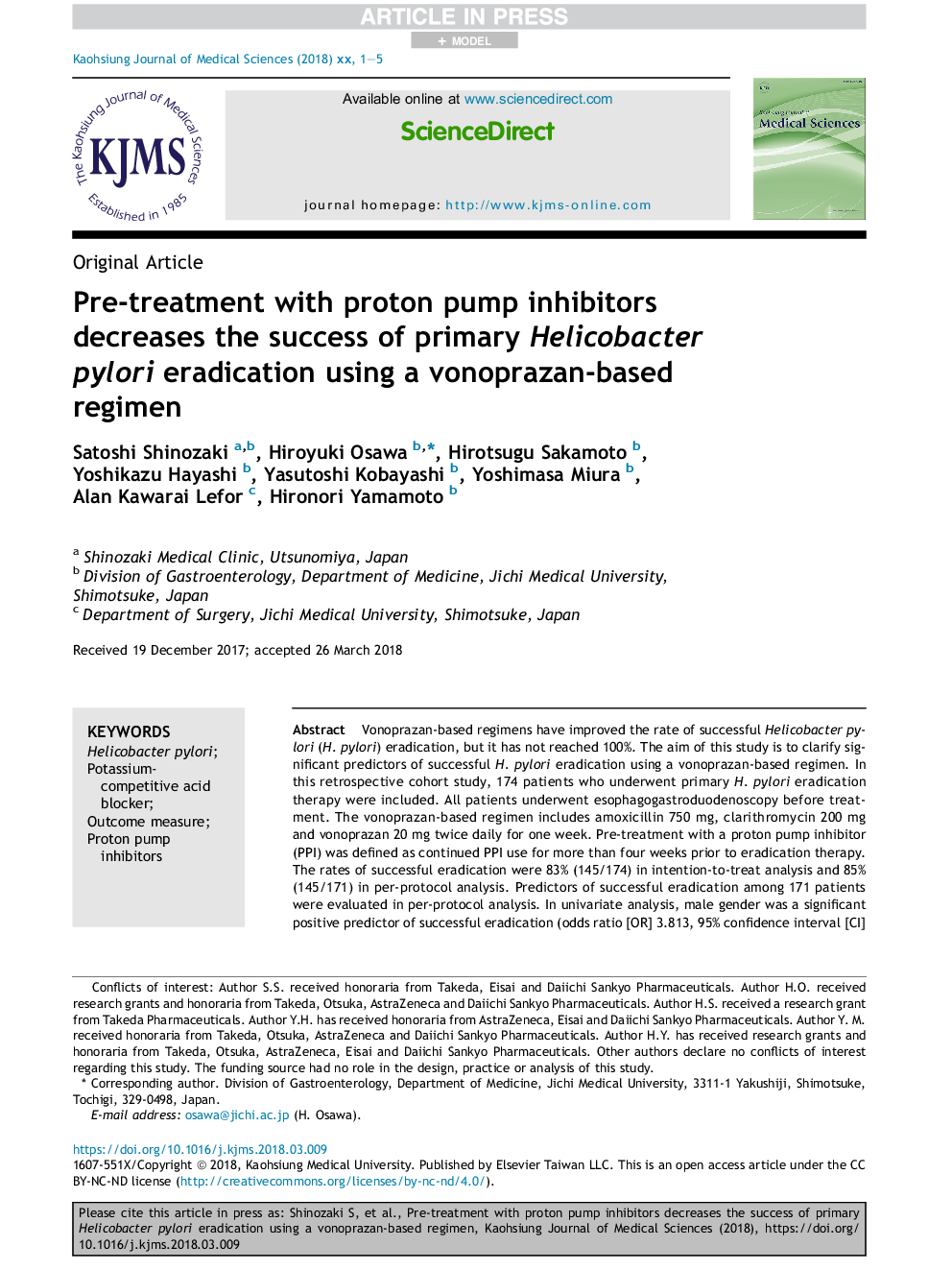| Article ID | Journal | Published Year | Pages | File Type |
|---|---|---|---|---|
| 8759551 | The Kaohsiung Journal of Medical Sciences | 2018 | 5 Pages |
Abstract
Vonoprazan-based regimens have improved the rate of successful Helicobacter pylori (H. pylori) eradication, but it has not reached 100%. The aim of this study is to clarify significant predictors of successful H. pylori eradication using a vonoprazan-based regimen. In this retrospective cohort study, 174 patients who underwent primary H. pylori eradication therapy were included. All patients underwent esophagogastroduodenoscopy before treatment. The vonoprazan-based regimen includes amoxicillin 750 mg, clarithromycin 200 mg and vonoprazan 20 mg twice daily for one week. Pre-treatment with a proton pump inhibitor (PPI) was defined as continued PPI use for more than four weeks prior to eradication therapy. The rates of successful eradication were 83% (145/174) in intention-to-treat analysis and 85% (145/171) in per-protocol analysis. Predictors of successful eradication among 171 patients were evaluated in per-protocol analysis. In univariate analysis, male gender was a significant positive predictor of successful eradication (odds ratio [OR] 3.813, 95% confidence interval [CI] 1.363-10.663, p = 0.010) and pre-treatment with PPIs was a negative predictor (OR 0.193, 95%CI 0.076-0.485, p < 0.001). In multivariate analysis, male gender remained a positive predictor (OR 3.826, 95%CI 1.317-11.116, p = 0.013), and pre-treatment with PPIs (OR 0.232, 95%CI 0.087-0.615, p = 0.003) remained a negative predictor. In conclusion, pre-treatment with PPIs before eradication therapy decreases the rate of successful eradication. Therefore, it may be desirable to discontinue pre-treatment with PPIs prior to eradication therapy, because of the potential to improve the rate of successful eradication.
Related Topics
Health Sciences
Medicine and Dentistry
Medicine and Dentistry (General)
Authors
Satoshi Shinozaki, Hiroyuki Osawa, Hirotsugu Sakamoto, Yoshikazu Hayashi, Yasutoshi Kobayashi, Yoshimasa Miura, Alan Kawarai Lefor, Hironori Yamamoto,
